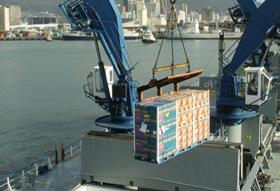
New entry requirements due to be published by the European Union on Monday for South African citrus imports, following the much-publicised spat over the potential transfer of the disease Citrus Black Spot to Europe, will have a negative impact on volumes shipped to the EU as well as grower revenue, industry sources have said.
What's more, fruit producers across South Africa were rocked this week by the publication of new draft legislation that forces farmers to give up 50 per cent of their land to the people who work for them.
Compliance with the new citrus regulations – which will be applied within 21 days of the announcement – is seen as an essential sacrifice if South Africa is to keep the EU market open to its fruit.
Non-compliance and five interceptions during the second half of the 2014 season will almost certainly result in a ban, one which will probably not be lifted for a number of years.
This will have a rippling effect in South Africa’s export markets around the world, because it will be almost impossible to shift the volumes which are normally sold in Europe somewhere else.
The land reform announcement, meanwhile, came out of the blue this week. New Minister of Rural Development and Land Reform, Gugile Nkwinti, delivered the news and prompted an immediate outcry across the country.
The legislation will be progressed further in April next year, with stakeholders given nine months to provide feedback before that time.
Commentators said the legislation would have 'disastrous consequences' for the fruit sector.
Nkwinti told TV news channels he was hoping the agri sector would use the opportunity to negotiate a new deal for agriculture, but many argued the move would erode confidence in new industry investment as well as causing land prices to drop.
'If this happens it will put the whole South African banking sector at risk which is heavily involved in financing the agricultural sector,' said one observer.
Sources in the fruit sector have deferred comment mostly to agricultural associations, but privately they remain hugely concerned about the move, pointing out that recent increases in labour and other costs have already pushed the fruit export sector to the limit.
Government intervention of the kind being proposed may just be the final straw for a number of growers to consider other international investment opportunities.
More certification
As for CBS, the new EU legislation requires all sweet oranges except Navels to be tested with Ethapon, a product which will show up CBS symptoms prior to export.
The South African Department for Agriculture, Forestry and Fisheries (DAFF) will have to issue an additional declaration to this effect, along with the existing phytosanitary certificate.
The industry, for its part, will be under pressure to have everything in place when such measures are implemented, between 21 and 24 July.
A number of shipments are already on the water and their discharge could be affected if all documents are not in place when they arrive in Europe.
Industry leaders, along with DAFF and the Citrus Growers’ Association (CGA) are now attempting to get a ruling on an import date, which they hope will coincide with a date in South Africa when new phyto certificates are issued.
Sources in the logistics field said they had been 'moving from crisis to crisis' to cope with the situation, while SA citrus leaders said they were adhering to all requirements: underscoring South Africa’s serious commitment to mitigate the EU risk on CBS.
It is very likely that the dispute on CBS between the EU and South Africa will end up at the WTO, particularly if the proposed measures – which South Africans still argue are unnecessary because there is no reasonable chance CBS could transferred to European orchards on fruit shipped from South Africa – result in a ban and future unjustifiable losses to the South African industry.



